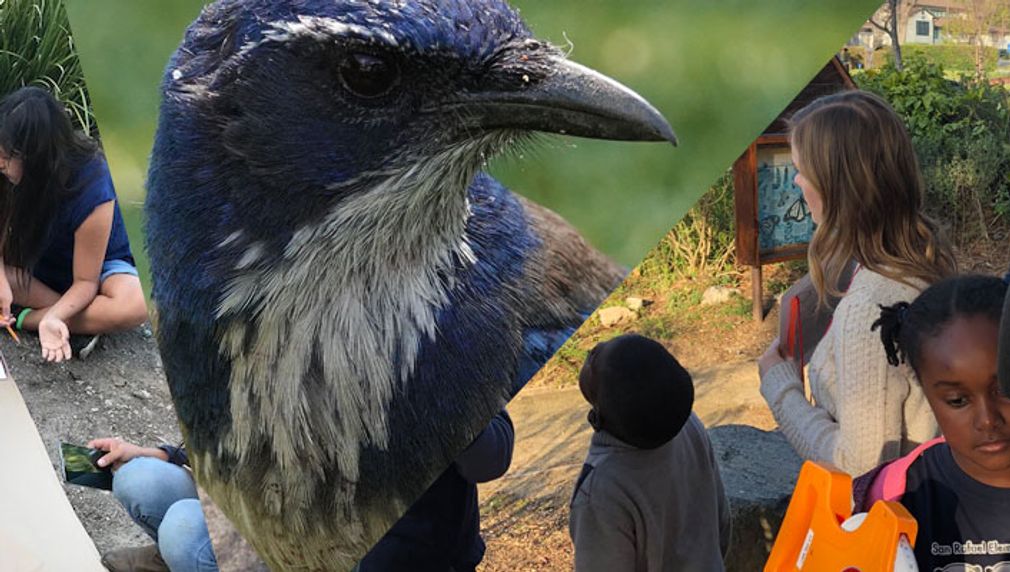LA's Libraries as Hubs for Science
The Los Angeles Public Library's Neighborhood Science program immerses learners in the science process. Across the Library's 73 sites, as well as online, children and teens use real data-collection tools to sample local air, soil, and water; and then are encouraged to share the data online with the global science community. Learners' findings help scientists around the world make more informed conclusions with a unique appreciation for and understanding of science surrounding issues like pollution, biodiversity loss, and climate change.

What is the primary issue area that your application will impact?
K-12 STEAM Education
In which areas of Los Angeles will you be directly working?
Central LA
East LA
San Fernando Valley
South LA
West LA
City of Los Angeles
LAUSD
In what stage of innovation is this project, program, or initiative?
Expand existing project, program, or initiative
What is your understanding of the issue that you are seeking to address?
While public awareness about environmental issues affecting our world has grown in recent years, many people are still largely unaware of how ecological challenges already impact their local communities. According to a 2023 Pew Research Center study, 39% of Americans do not believe climate change affects their communities in any significant manner. Even in California, which has recently, in a matter of months, whiplashed between historic drought and exceptionally rare storms, many people continue to believe that the environmental challenges we face today will not have consequences until long into the future. A 2022 survey by the Public Policy Institute of California found that 31% of adults do not believe the effects of climate change have even begun. This results in both individual and group choices that are needed today being impacted, creating delays in long term sustainability solutions.
Describe the project, program, or initiative this grant will support to address the issue.
Neighborhood Science is the Los Angeles Public Library's science and sustainability literacy initiative. Trained librarians lead weekly workshops exploring local biodiversity, mapping insect habitats, monitoring community air or water quality, and more. Programs hosted at participating Library sites, and online at https://www.lapl.org/neisci, target young people (ages 10+) and their families Families who cannot attend a program onsite are encouraged to check out a DIY kit at one of our 33 branches which are located throughout LA. DIY kits include instructions, materials, and resources for independent engagement and learning. Through a partnership with LAUSD, the Library will also make kits available to middle and high school teachers to supplement core science lessons and support student engagement in their classes. All activities and kits are offered free of charge. Neighborhood Science has been developed around the citizen/ participatory science model to present complex topics in a manner that is easy for anyone to understand, regardless of age or education level. The main requirement for participation is an interest in science and nature! Participants immediately begin learning by using specialized instruments to conduct sampling; then they save data online for future review and interpretation by climatologists, ecologists, and other scientists. In the process, participants see firsthand how their actions impact the communities, organisms, and plant life around them.
Describe how Los Angeles County will be different if your work is successful.
Our goal over the short and long term is to make the process of learning science less intimidating, as well as making sustainability a key area of importance for more throughout our city to act on. Over the coming year, LA2050 funding will enable us to provide to the public at our Library branches more Neighborhood Science programs and DIY kits, more digital workshops online via www.lapl.org, and additional classroom kits to LAUSD teachers to share with their students. Longer term, we aim to partner with other libraries across the country and around the world to launch their own citizen science programs. The Los Angeles Public Library has been offering science literacy programs since 2012, and was the first among large urban library systems worldwide to implement a participatory science program systemwide. Today, our Neighborhood Science team is sought by other library systems who are seeking to implement a similar program for their communities.
What evidence do you have that this project, program, or initiative is or will be successful, and how will you define and measure success?
The Library measures the impact of Neighborhood Science by participant turnout and satisfaction using both quantitative and qualitative data. We initially track the number of attendees at all programs, as well as encouraging patrons to share feedback on their learning experience and the quality of activities at the end of each workshop. Since launching Neighborhood Science in 2018, program attendance has grown from the dozens, to hundreds, and now thousands of people from across Los Angeles. Meanwhile, librarians have collected hundreds of anecdotes from children, parents, and teachers about the impact the program had on their learning. Library staff use participant data captured to make program modifications, determine participants' depth of engagement, and to reformat areas and topics that can be further developed or explored. This is how we have not only managed to deepen participant engagement with the program, but increased offerings year over year.
Approximately how many people will be impacted by this project, program, or initiative?
Direct Impact: 1,500
Indirect Impact: 10,000